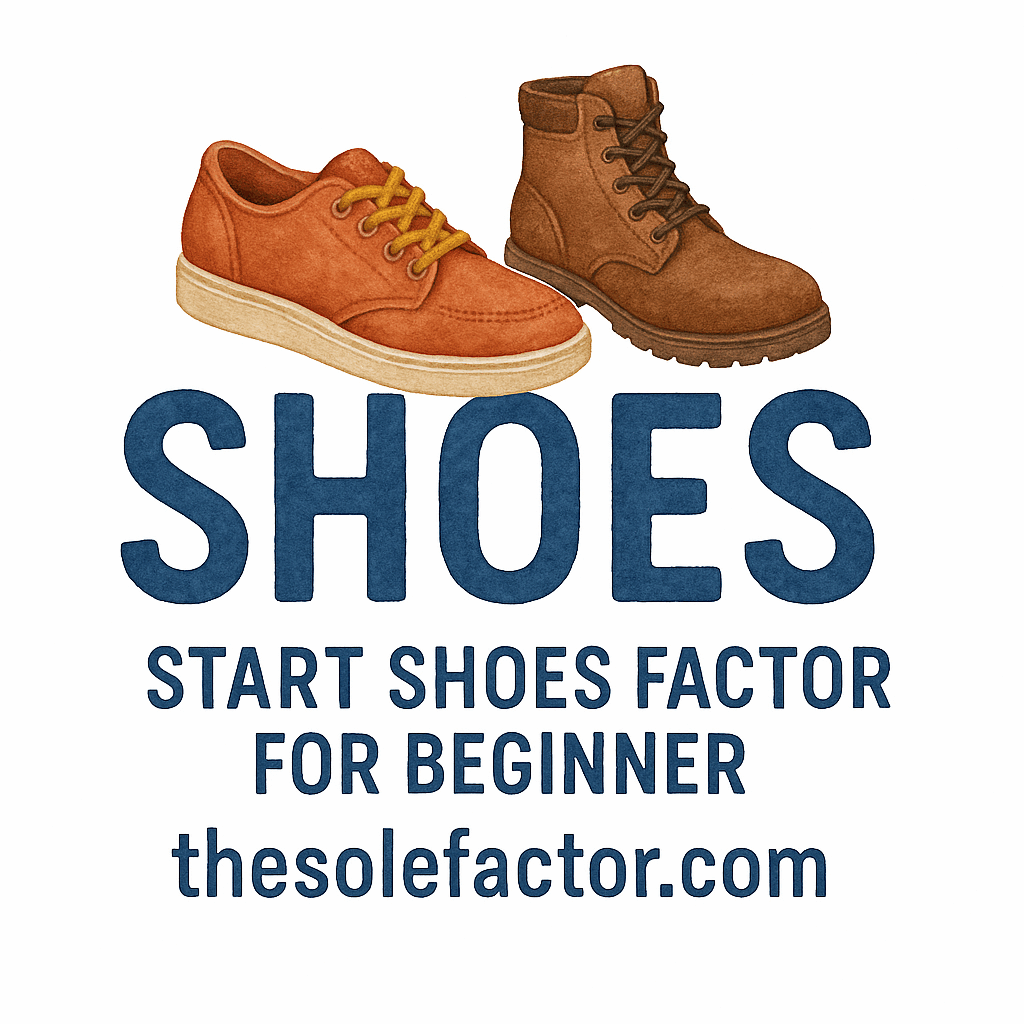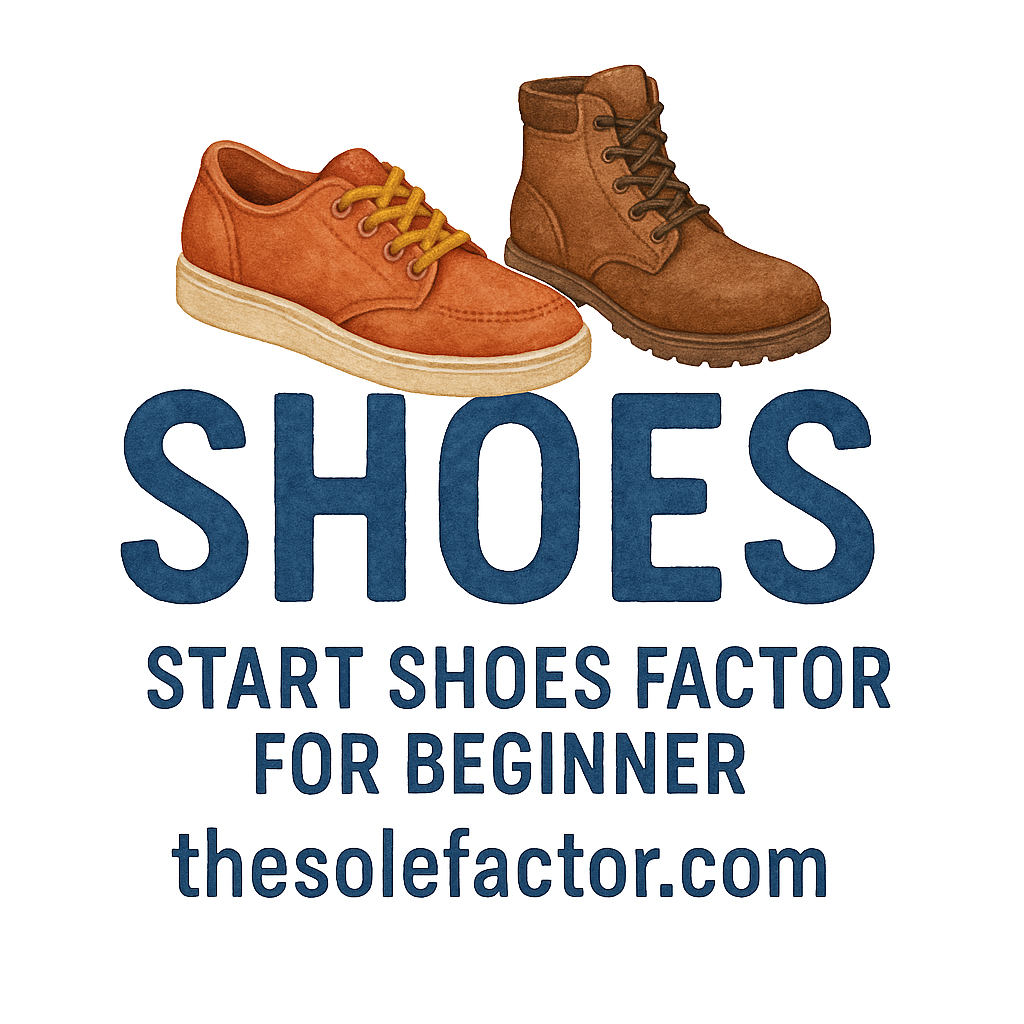Introduction
Starting your own shoe factory is a thrilling yet challenging venture. Whether you’re passionate about footwear or looking to tap into a profitable market, the shoe manufacturing industry offers endless possibilities. But, before you dive in headfirst, it’s crucial to have a clear roadmap. In this article, we’ll go over the 9 important questions to ask yourself before setting up your own shoe factory, helping you ensure you’re on the right track. From understanding market trends to budgeting effectively, these questions will lay the foundation for a successful venture.
1. What Is the Current State of the Shoe Industry?
Before starting any business, it’s essential to understand the market you’re entering. The shoe industry is diverse, catering to different niches, such as athletic shoes, casual wear, and luxury footwear.
Market Trends in Footwear Manufacturing
In recent years, there has been a growing demand for eco-friendly and sustainable footwear. Consumers are increasingly aware of the environmental impact of their purchases, pushing brands to adopt sustainable practices. Researching these trends can give you insights into where the industry is headed and help you decide whether you want to cater to specific niches or adopt an all-inclusive approach.
Understanding Consumer Preferences
Are consumers looking for comfort, style, or affordability? Understanding these preferences can significantly influence your product offerings. Moreover, keeping an eye on evolving trends like customization and direct-to-consumer sales could help your brand stand out.
2. Do You Have a Clear Business Plan?
A solid business plan is the backbone of your shoe manufacturing journey. It not only helps you clarify your goals but also attracts potential investors.
Why a Business Plan Is Crucial
A well-thought-out plan outlines your vision, the resources you’ll need, and your growth projections. It acts as a blueprint to keep you on track as you navigate the complexities of launching and running your factory.
Key Components of a Solid Business Plan
Your plan should include sections on market analysis, competition, operational structure, funding sources, and sales strategies. A comprehensive business plan makes it easier to secure funding and get started on the right foot.
3. What Are the Initial Costs and Budgeting Requirements?
Starting a shoe factory isn’t a cheap endeavor. From machinery to raw materials, the upfront costs can be hefty. Understanding these expenses is key to setting your expectations and managing your finances.
Understanding Startup Costs for a Shoe Factory
You’ll need to budget for purchasing or leasing a factory space, hiring skilled labor, and investing in production equipment. Make sure to plan for operating costs like utilities, maintenance, and inventory management.
Cost Breakdown: Equipment, Labor, and Materials
Investing in high-quality machinery is crucial for efficient production. The cost of machinery varies depending on the type and scale of your factory. Labor costs will also need to be factored in, depending on the number of employees you plan to hire. Additionally, the raw materials, such as leather, fabric, and rubber, are vital for production.
For further information on effective budgeting, check out this guide on Budgeting for Business.

4. Where Will You Source Your Raw Materials?
The quality of raw materials directly impacts the final product. Identifying reliable suppliers and understanding material costs is crucial in maintaining product standards and profitability.
Identifying Reliable Suppliers
Look for suppliers with a strong track record in providing high-quality materials on time. Consider attending trade shows or searching online platforms to find reputable suppliers. Developing strong relationships with them can also lead to better deals and discounts.
The Importance of Material Quality
Whether you’re working with leather, synthetic fabrics, or rubber, ensuring that your raw materials are durable and sustainable will keep your products competitive. Pay attention to sourcing eco-friendly materials, as this is a major selling point in today’s market.
If you’re interested in the latest design trends in shoes, check out the Shoe Design Trends.
5. Have You Considered Your Factory Location?
The location of your shoe factory can impact everything from logistics to employee recruitment. Choosing the right place is vital for your business’s success.
The Impact of Location on Your Business
Your factory location affects production costs, access to raw materials, and shipping logistics. A location near major transportation hubs can reduce shipping costs, while proximity to suppliers can ensure a steady material flow.
Factors to Consider When Choosing a Factory Location
Consider local labor availability, the cost of land or leasing, and government incentives for setting up your business in a particular area. Research the local infrastructure and community to ensure it aligns with your needs.
For further insights into factory setup, check out Shoe Factory Basics.
6. Do You Understand the Legal and Regulatory Requirements?
Every industry has regulations that businesses must follow, and the shoe manufacturing industry is no exception. Make sure you understand the legal and regulatory landscape before starting your factory.
Industry Regulations and Safety Standards
Your factory must comply with labor laws, environmental regulations, and safety standards. Failure to do so could lead to fines, legal issues, or even shutdowns.
Permits and Licenses You Need to Start a Shoe Factory
Depending on your location, you may need permits for manufacturing, zoning, waste management, and more. It’s advisable to consult with a legal expert to ensure you have all the required documentation.
To learn more about managing your business operations, refer to Business Operations and Finance.
7. How Will You Differentiate Your Shoes from Competitors?
The shoe market is competitive, and standing out is essential for success. A strong, unique brand can make all the difference.
Importance of Branding in the Shoe Industry
Branding helps you create an emotional connection with customers. It’s what makes people choose your brand over others, even if prices are similar.
Strategies for Creating a Unique Selling Proposition
Whether it’s through sustainability, design innovation, or comfort, having a strong unique selling proposition (USP) sets you apart. Your USP should reflect your brand’s values and resonate with your target market.
Learn more about branding strategies on Marketing and Branding.
8. Do You Have a Solid Marketing and Sales Strategy?
A good product is only half the battle. You also need an effective marketing strategy to get the word out.
Building Your Brand and Online Presence
With the rise of e-commerce, having an online presence is essential. Create a professional website, showcase your designs, and engage customers on social media.
Utilizing Social Media for Shoes Promotion
Platforms like Instagram and Pinterest are great for showcasing shoes, especially if you’re targeting a younger audience. Collaborations with influencers and social media campaigns can help increase visibility.
For tips on how to promote your brand, check out our guide to Promotion and Branding.
9. What Equipment and Machinery Will You Need?
The right equipment and machinery are fundamental to producing high-quality shoes efficiently. Investing in state-of-the-art tools can increase productivity and reduce defects.
Identifying Key Equipment for Shoe Production
You’ll need machines for cutting, stitching, molding, and finishing your shoes. Research and invest in equipment that suits your production scale and product range.
Importance of High-Quality Machinery in Manufacturing
Quality machinery ensures your products meet industry standards, and reliable equipment reduces downtime. Make sure to factor in ongoing maintenance costs for machinery.
To understand the equipment needed, check out our section on Production and Equipment.
Conclusion
Starting a shoe factory is no small feat, but by asking yourself these 9 crucial questions, you’ll be better prepared for the challenges ahead. A clear understanding of the market, a well-structured business plan, careful budgeting, and an effective marketing strategy are all necessary to succeed. Make sure you do thorough research and plan for the long term.
FAQs
- How much capital do I need to start a shoes factory?
The initial capital will depend on factors such as factory size, location, and machinery costs. On average, you should budget for a few hundred thousand dollars to cover initial costs. - What is the most important thing to focus on when starting a shoe factory?
Having a clear business plan and understanding your target market are crucial for success. - How long does it take to set up a shoe manufacturing plant?
Setting up a factory can take anywhere from 6 months to a year, depending on the scale and complexity of your operations. - What is the most important factor in choosing a location for a shoe factory?
Proximity to suppliers, labor availability, and transportation infrastructure are key factors to consider. - Can I start a shoes factory with a small budget?
Yes, you can start small and scale up over time. Focus on niche markets and efficient production processes to minimize initial costs. - How do I find the best suppliers for raw materials?
Attend trade shows, search online directories, or ask for referrals from other manufacturers to find trusted suppliers. - How do I market my shoe brand effectively?
Leverage social media, influencer marketing, and targeted advertising to build brand awareness and engage with your audience.


